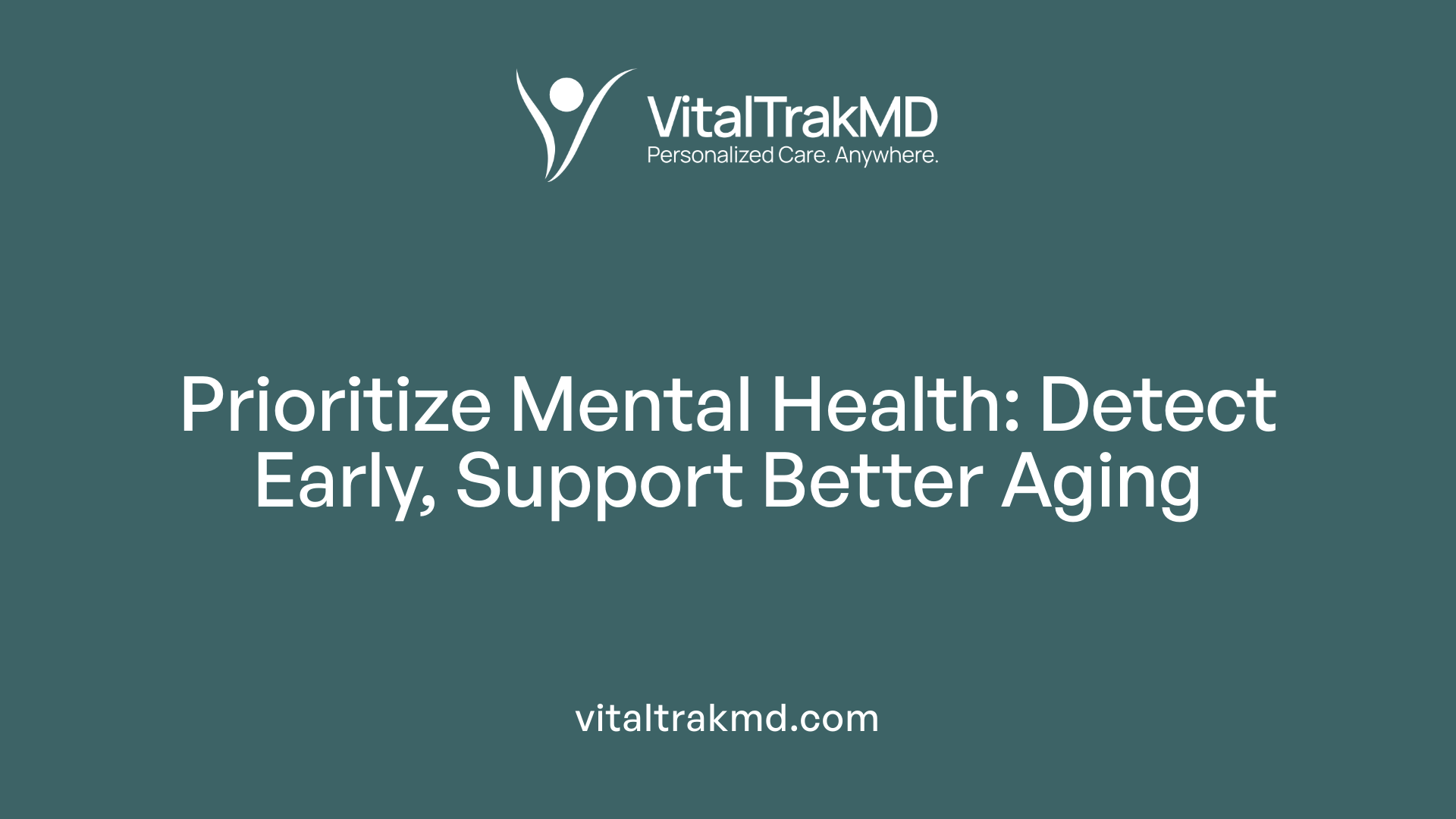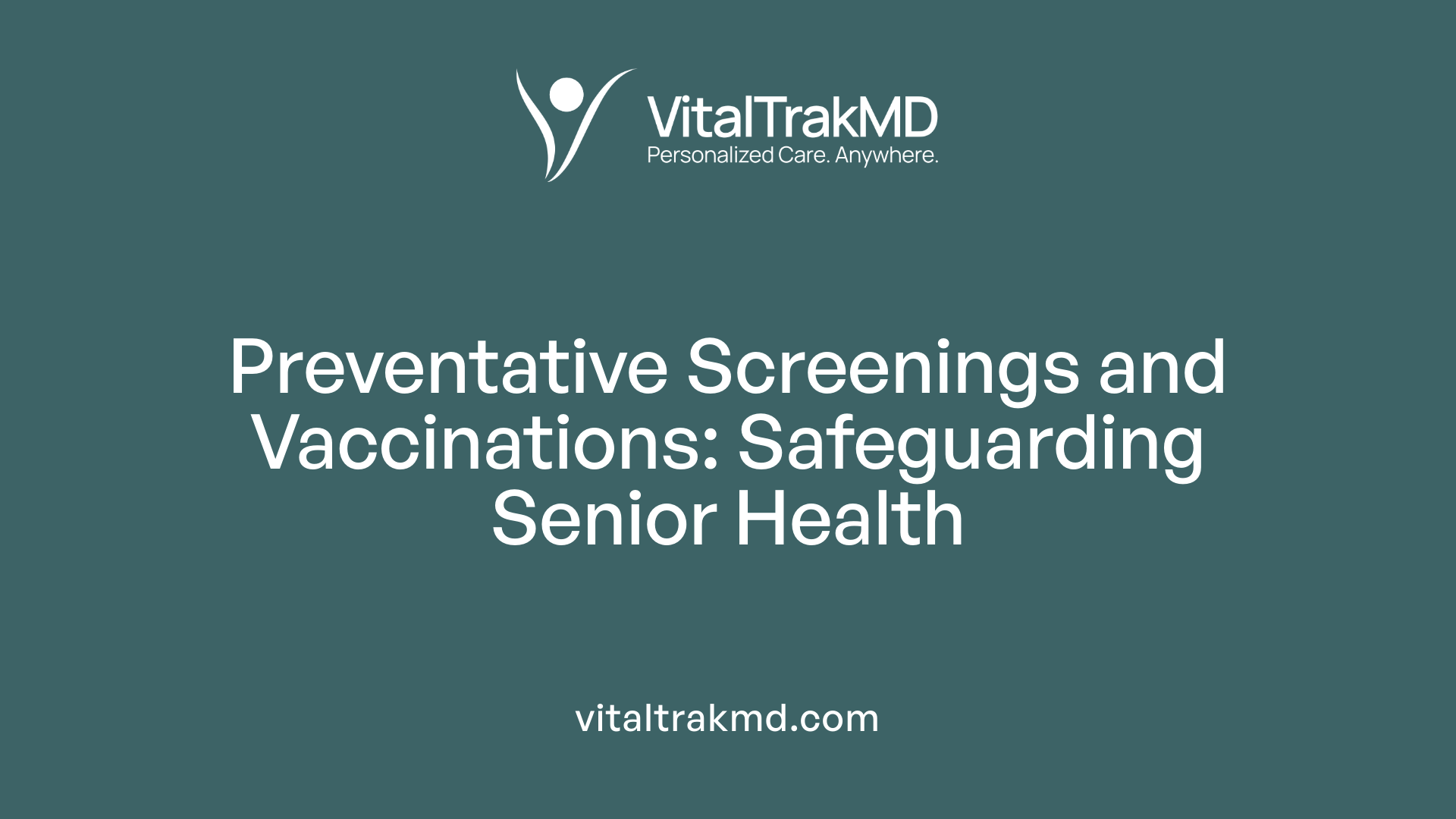Supporting Seniors With Personal Check-Ins to Prevent Health Setbacks

The Importance of Personal Check-Ins for Seniors
As the senior population grows, proactive health management becomes crucial to maintaining quality of life and independence. Personal check-ins, including annual wellness visits and ongoing monitoring, offer a vital opportunity to prevent severe health setbacks by addressing risk factors early, tailoring care plans, and supporting holistic wellbeing. This narrative explores how structured wellness programs and personalized attention can empower seniors to thrive.
The Medicare Annual Wellness Visit: A Cornerstone of Preventive Care for Seniors

What is the purpose of the Medicare Annual Wellness Visit and who is eligible?
The Medicare Annual Wellness Visit is designed to promote health and prevent future illnesses among seniors. It focuses on creating personalized prevention plans to maintain health and avoid injury rather than diagnosing or treating current medical conditions. To be eligible, individuals must have Medicare Part B coverage for at least one year and should not have received a similar visit in the past year.
What comprehensive assessments are involved in the visit?
The visit includes a thorough review of personal and family medical history, health risk assessments, and routine measurements such as blood pressure. It also covers functional and safety evaluations and cognitive assessments to detect issues like dementia, memory loss, depression, and anxiety. Discussions about substance use, including opioids, are part of the agenda to address preventive care holistically.
Who performs the Medicare Annual Wellness Visit?
Various healthcare professionals can conduct these visits, including doctors, nurse practitioners, and physician assistants. This flexibility ensures seniors have broad access to preventive care regardless of the setting.
How do these preventive care visits benefit seniors?
Regular wellness visits help detect potential health concerns early and encourage lifestyle changes such as improved diet, physical activity, and social engagement. Cancer screenings, vaccinations, and management of chronic conditions are coordinated through these visits, significantly reducing risks of serious illness. Additionally, educating seniors empowers them to actively manage their health, fostering independence and a better quality of life.
What are some common features of comprehensive wellness and care programs?
Comprehensive wellness programs often include personalized health assessments and goal setting, educational sessions, behavior counseling, and the use of technology like wearables and health apps to track progress. Social support through community challenges and incentives helps maintain motivation. These programs holistically target mental, emotional, financial, and social well-being and are designed to be accessible to employees working remotely or on-site. Leadership involvement and continuous feedback collection ensure these programs remain effective and impactful.
Monitoring Mental Health: A Vital Component of Senior Wellness

Cognitive and Mental Health Assessments in Wellness Programs
Senior wellness programs, like Medicare's Annual Wellness Visit, include cognitive assessments to evaluate conditions such as dementia, memory loss, depression, and anxiety. These evaluations help detect early warning signs of mental health issues, allowing for timely support that maintains seniors' overall well-being and independence. Healthcare professionals—including doctors and nurse practitioners—conduct these assessments as integral parts of a comprehensive preventive care plan.
What Role Does Mental Health Play in Successful Weight Loss and Wellness Efforts?
Mental health greatly influences weight loss and wellness success by shaping motivation, emotional resilience, and behaviors. Challenges like stress, depression, and anxiety can lead to emotional eating and decreased motivation, making it harder to stick with healthy diets or exercise routines. Support systems such as therapy and support groups combat isolation and provide emotional tools to overcome these barriers. Understanding the impact of mental health allows seniors to approach weight management more holistically, addressing both psychological and physical health needs.
Strategies to Support Mental Well-Being Among Seniors
Supporting seniors' mental wellness involves several strategies:
- Encouraging social engagement to reduce loneliness and boost mood
- Practicing brain-stimulating activities like puzzles or learning new skills
- Promoting meditation and stress management techniques for emotional balance
- Maintaining a nutritious diet rich in brain-supportive foods
- Integrating mental health discussions into regular preventive care visits These approaches, combined with routine mental health screening, empower seniors to maintain cognitive function and emotional health, complementing their physical wellness efforts.
Integrating Technology to Enhance Senior Health Monitoring and Safety

How does telehealth and electronic health records support senior care?
Telehealth has become a vital tool in senior healthcare, offering remote access to medical consultations and follow-ups. Many adults over 50 are comfortable using telehealth services, which help maintain ongoing health monitoring without the need for frequent in-person visits. Electronic health records streamline preventive care activities by ensuring timely access to medical histories, test results, and personalized care plans, allowing healthcare professionals to intervene quickly when needed.
What role do wearable health devices and fall detection systems play?
Wearable health devices monitor vital signs such as heart rate, activity levels, and sleep patterns, providing real-time data that can alert both seniors and caregivers to potential health changes. Fall detection systems are especially crucial, as they can automatically notify emergency services if a fall occurs, promoting safety and faster response times. These technologies support independence while enhancing the safety of seniors in their homes.
How can health apps and smart home technologies assist ongoing care?
Health apps offer seniors tools to track medications, schedule appointments, and receive reminders for screenings or vaccinations. Despite the availability, many seniors have not fully embraced these apps, highlighting the opportunity for improved education and guidance. Smart home technologies, including automated lighting, voice-activated assistants, and environmental controls, help create a supportive living environment that encourages mobility and reduces risks, contributing to sustained wellness and safety.
By incorporating these technologies into healthcare routines, seniors can benefit from proactive monitoring, timely interventions, and greater autonomy in managing their health.
Nutrition and Lifestyle Interventions for Effective Weight Management in Seniors
What are the most effective weight loss strategies supported by wellness programs?
Wellness programs emphasize a multi-faceted approach to weight management, blending balanced diets with lifestyle changes tailored for seniors. Diets such as DASH and the Mediterranean have proven effective due to their focus on whole foods, rich fruits, vegetables, lean proteins, and healthy fats, making them heart-healthy and sustainable options.
Physical activity plays a vital role, encouraging seniors to incorporate regular movement that suits their abilities, like walking or light resistance exercises. Proper hydration supports metabolism and overall health, reinforcing these lifestyle habits.
Gradual and sustainable weight loss, aiming for about 1 to 2 pounds per week, is advised. This slow pace helps prevent muscle loss and supports lasting changes rather than quick fixes.
Support systems enhance motivation and adherence. Family, friends, or healthcare providers assist in goal-setting and accountability, while regular tracking of diet, exercise, and progress ensures seniors stay engaged and empowered toward their health goals.
The Role of Vaccinations and Screenings in Preventing Senior Health Setbacks

Routine Screenings: Cancer, Cholesterol, Diabetes, Osteoporosis
Regular health screenings are crucial for seniors to detect potential issues before they advance. Important screenings include cancer checks such as mammograms for women aged 40-74 and colorectal cancer screenings starting at age 50. In addition, monitoring cholesterol levels, diabetes indicators, and osteoporosis risk helps prevent serious complications associated with these conditions. Annual wellness exams often include these assessments, providing a comprehensive overview of health status.
Vaccination Importance: Influenza, Pneumococcal, Shingles, COVID-19, and Others
Vaccinations play a vital role in safeguarding seniors against preventable diseases. Key vaccines include annual influenza shots, pneumococcal vaccines to protect against pneumonia, and shingles vaccines that help prevent painful outbreaks common in older adults. COVID-19 immunizations also remain critical to reducing severe illness risks. Other important vaccines include hepatitis B, HPV, RSV, and Tdap, all contributing to a broader shield of protection.
Impact on Overall Health and Reducing Complications
Together, routine screenings and vaccinations significantly improve seniors’ health outcomes by identifying risks early and preventing infections that could lead to hospitalization. These preventive measures reduce the likelihood of chronic condition complications, support healthy aging, and help maintain independence. Through personalized prevention plans and regular monitoring, seniors are empowered to enjoy better quality of life and longer longevity.
Empowering Seniors Through Education and Personalized Care Plans

How do wellness programs promote overall health and disease prevention for seniors?
Wellness programs play a vital role in enhancing seniors' health by encouraging healthy habits such as regular physical activity, balanced nutrition, and stress management. These initiatives also emphasize the importance of routine health screenings, which can catch illnesses early and prevent complications.
These programs use personalized coaching, biometric screenings, and tailored assessments to help seniors make sustainable lifestyle changes. For example, promoting balanced diets like the DASH or Mediterranean diet and encouraging social engagement boost both physical and cognitive well-being.
By fostering healthier behaviors, wellness programs reduce the risk of chronic diseases like cardiovascular conditions, diabetes, and obesity. Studies show that such programs not only improve health outcomes—such as better weight management and lower risk factors—but also contribute to significant healthcare cost savings.
What is the role of personalized, patient-centered prevention plans?
Personalized care plans are designed to meet each senior's unique health needs and preferences. These plans integrate data from comprehensive assessments, including medical history, cognitive screenings, and functional evaluations, to tailor prevention strategies effectively.
This patient-centered approach ensures seniors receive relevant recommendations, whether for cancer screenings, vaccination schedules, or lifestyle modifications. By personalizing prevention, these plans enhance effectiveness and promote greater adherence to healthy behaviors.
How can seniors be supported to actively manage their health and wellness?
Empowering seniors through education is essential for active health management. Providing accessible resources on preventive care, healthy lifestyle choices, and the benefits of regular screenings helps seniors understand their role in maintaining health.
Additionally, incorporating technology such as telehealth, wearable devices, and health apps can streamline ongoing monitoring and safety. Despite many seniors relying on online sources like Google for health information, there is an opportunity to improve guidance and increase their use of wellness tools.
Support from healthcare providers including doctors, nurse practitioners, and physician assistants also encourages seniors to participate actively in their care. Programs like those offered by ChenMed illustrate how provider education and resources can boost the delivery of proactive preventive care.
| Aspect | Description | Benefits |
|---|---|---|
| Education | Information on preventive care, screenings, and lifestyle choices | Increases awareness and encourages healthy habits |
| Personalized Care Plans | Tailored strategies based on individual assessments | Improves adherence and prevents illnesses effectively |
| Technology Integration | Use of telehealth, wearables, and health apps | Enhances health monitoring and early intervention capabilities |
| Provider Support | Training and resources for healthcare professionals | Strengthens care delivery and supports patient-centered approaches |
Personalized Prevention as the Pathway to Senior Wellbeing
Personal check-ins and preventive care form the backbone of supporting seniors against health setbacks. Through Medicare Annual Wellness Visits, mental health monitoring, targeted lifestyle interventions, and smart use of technology, seniors can receive timely, individualized attention that prevents complications before they arise. Vaccinations, screenings, and education empower older adults to actively engage in their health journey, maintaining independence and quality of life. As wellness programs continue to evolve with innovative tools and personalized approaches, they pave the way for healthier, more resilient senior communities.
References
- What Is a Medicare Annual Wellness Visit?
- Preventive Care, Wellness, and Longevity for Seniors
- Preventive Care for Seniors: How to Age Well and Stay ...
- Prevention, Wellness, and Healthy Behaviors
- The Psychological Side of Weight Loss
- The Connection Between Healthy Weight and Mental Health
- How Excess Weight Impacts Our Mental and Emotional ...
- 10 Best Features of Wellness Platforms
- 10 Key Features of Successful Employee Wellness Programs
Recent articles
Want to Feel Better and Live Healthier?
Join hundreds of patients taking control of their health with personalized care that fits their life – not the other way around.
Rated 4.8/5 by 32+ customers







